At the launch of the book, Ashworth recalled how elated he was when a group of Catholic entities approached him with the request to be the one to write Archbishop Odama’s story.
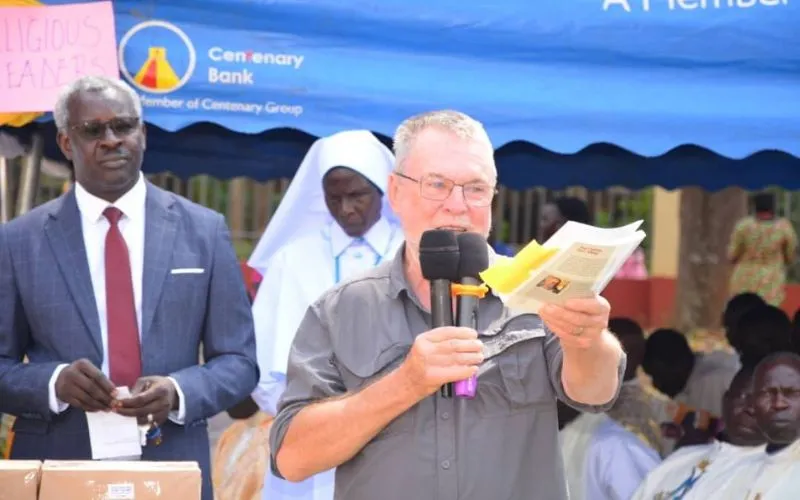 Credit: Catholic Archdiocese of Gulu
Credit: Catholic Archdiocese of Gulu
“About three years ago, when I was asked to write about our uncle, Archbishop Odama, I was very happy to do so,” the Kenya-based author said.
In the book, Ashworth recounts having been approached by the Irish Caritas agency, Trocaire, on behalf of a group of Caritas Internationalis agencies, and asked if he would be willing to write the Archbishop’s biography, a project they said they had been trying to get off the ground for a couple of years.
Ashworth, who has collaborated with church representatives in Sudan and South Sudan for over four decades recalled having met Archbishop Odama, when the Church leader reached out to Sudan to hear some of the Northeastern African country’s experiences of peace and human rights. “Bishops of Sudan sent me to represent them in sharing our experiences with the then Archbishop of Gulu,” Ashworth said about Archbishop Odama.
(Story continues below)
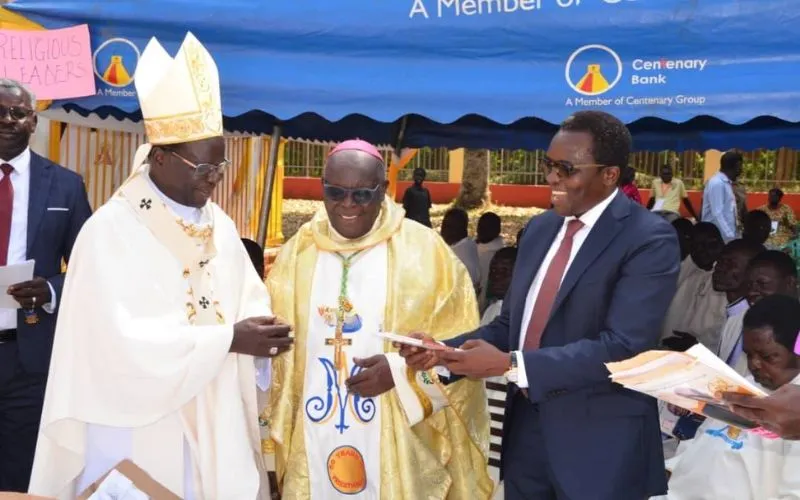 Credit: Catholic Archdiocese of Gulu
Credit: Catholic Archdiocese of Gulu
Explaining the structure of the 200-page book, Ashworth said, “The book covers some of the LRA conflicts. It covers the ARLPI, but it also takes us back to the early years of the Archbishop, and also takes us beyond the LRA conflict into the post-conflict healing and rehabilitation, restoration.”
Central to the book, are two themes that the Archbishop Odama desired to be explored; that of spirituality and that of humanity.
About spirituality, Ashworth explained, “As we know very well within our Catholic Church, activism which is not rooted in spirituality can become misguided and even harmful to both the activist and society. The Archbishop is very well aware of this.”
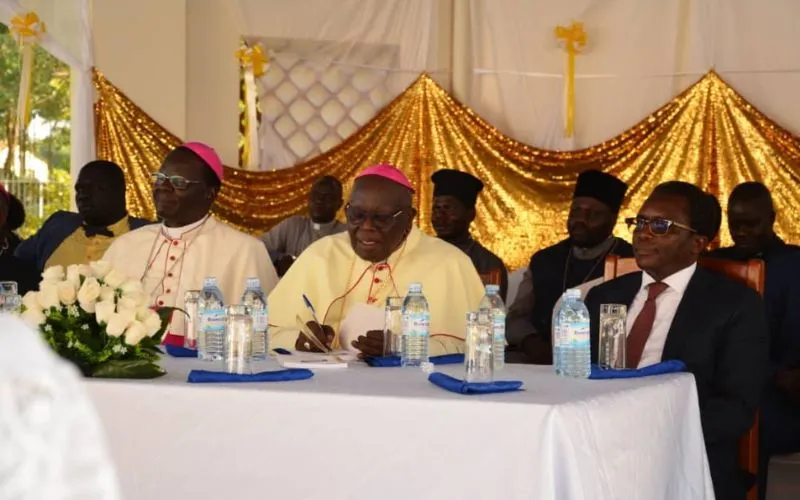 Credit: Catholic Archdiocese of Gulu
Credit: Catholic Archdiocese of Gulu
Amidst his busy schedule, with people queuing outside his office from early morning especially while he served first as Local Ordinary of Nebbi and later of Gulu, Archbishop Odama always reserved one full day in a week for prayer and fasting.
In the book, Archbishop Odama says, “After Mass every Thursday, I exposed the Blessed Sacrament. And then I did something extra. Instead of going for breakfast, I refused to go for breakfast. I stayed there. No breakfast. No lunch. I will stay the whole day.”
The Ugandan Catholic Church leader would finish the adoration and proceed to benediction with Sisters that usually joined him. “We would say the evening prayers together and have benediction. This has been the case from the year 2000 up to now. Every Thursday, I am for adoration.”
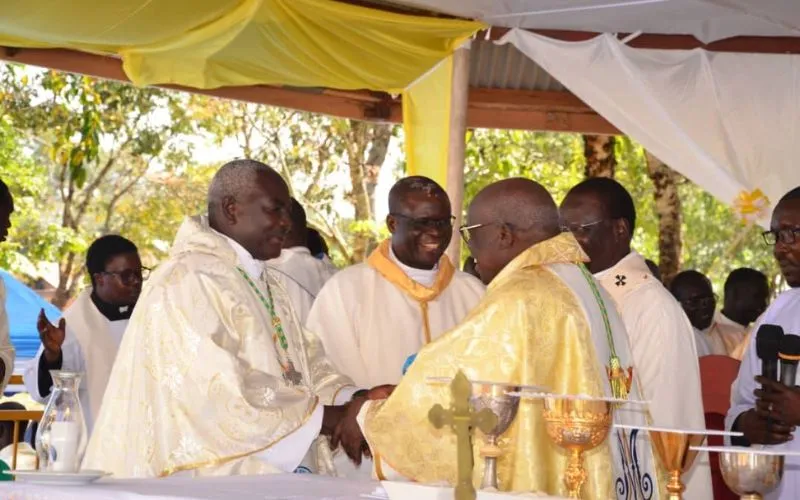 Credit: Catholic Archdiocese of Gulu
Credit: Catholic Archdiocese of Gulu
With two scripture passages that would often come to him during meditation before the Blessed Sacrament, Archbishop Odama would get the strength and courage during the difficulties and dangers that surrounded him.
The other thing Archbishop Odama wanted stressed in the book was moving beyond what Ashworth described at the book launch as “narrow and exclusive identity groups such as tribe, nationality, race, creed, or political affiliation.”
Archbishop Odama was all for “viewing all human beings inclusively as our brothers and sisters to the extent that one can truly say ‘my tribe is humanity’, Ashworth recalled.
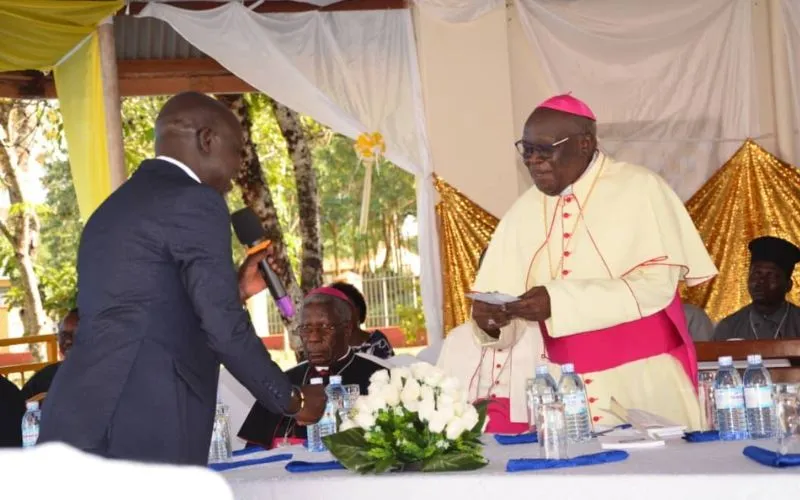 Credit: Catholic Archdiocese of Gulu
Credit: Catholic Archdiocese of Gulu
Apart from Archbishop Odama’s impact on the people of God in Uganda and beyond as a peace-maker, Ashworth’s book explores the influences and experiences of ministry, which helped to form the Archbishop’s spirituality as a “peace Bishop”, who values life and the dignity of a human being above everything.
Going for US$.10.00, the book that was highly acclaimed at the launch as an important historical resource can be obtained from bookshops under the management of the Pious Society of the Daughters of St. Paul (FSP), popularly known as Pauline Sisters.
Born on 29 June 1947 in the Northern region of Uganda, Archbishop Odama was ordained a Priest of the Catholic Diocese of Arua on 14 December 1974. On 23 February 1996, Pope John Paul II appointed him the pioneer Bishop of Nebbi Catholic Diocese.
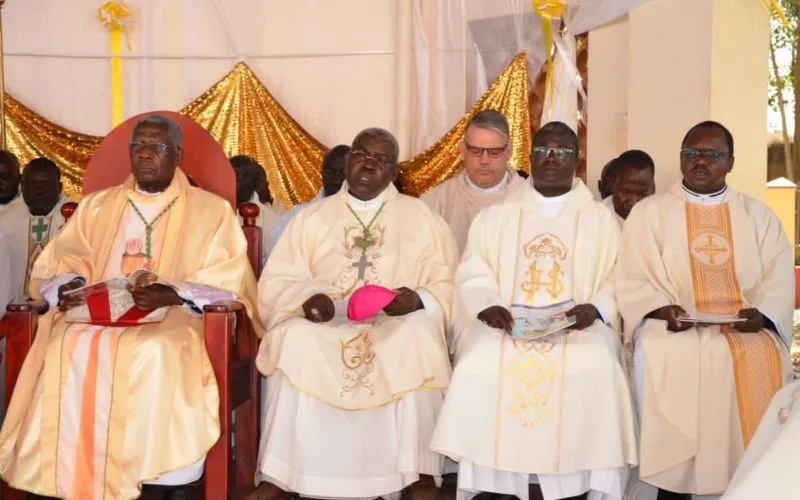 Credit: Catholic Archdiocese of Gulu
Credit: Catholic Archdiocese of Gulu
He was at the helm of Nebbi Diocese until 2 January 1999, when he was appointed the pioneer Local Ordinary of the newly created Catholic Archdiocese of Gulu.
In 2004, ARLPI, the interfaith faith organization he led, received the Niwano Peace Prize for its peace-building efforts in Northern Uganda.
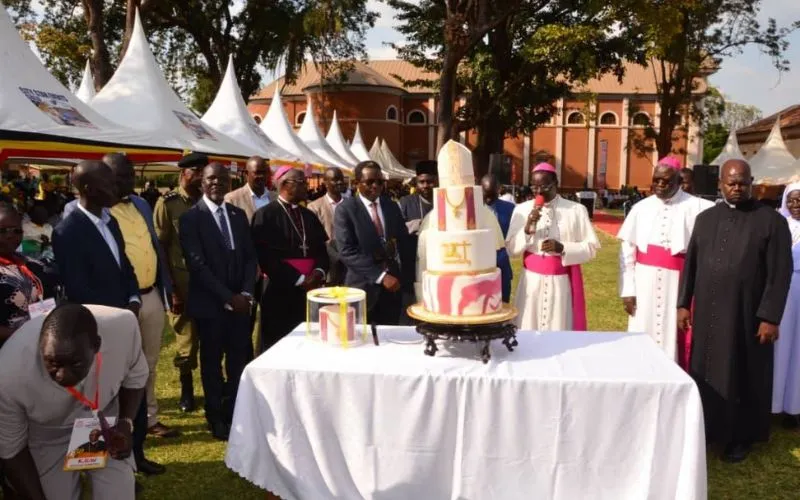 Credit: Catholic Archdiocese of Gulu
Credit: Catholic Archdiocese of Gulu
Archbishop Odama, who served for two consecutive terms as the chairman of the Uganda Episcopal Conference (UEC) was also awarded an honorary doctorate of Philosophy by Gulu University in 2017 for his work in brokering peace and reconciliation in the once-embattled Northern Uganda.
The Ugandan Catholic Archbishop is also the winner of the 2012 peace-maker prize by World Vision, a Christian relief, development and advocacy organization that works with children, families and communities to overcome poverty and injustice.
Agnes Aineah is a Kenyan journalist with a background in digital and newspaper reporting. She holds a Master of Arts in Digital Journalism from the Aga Khan University, Graduate School of Media and Communications and a Bachelor's Degree in Linguistics, Media and Communications from Kenya's Moi University. Agnes currently serves as a journalist for ACI Africa.
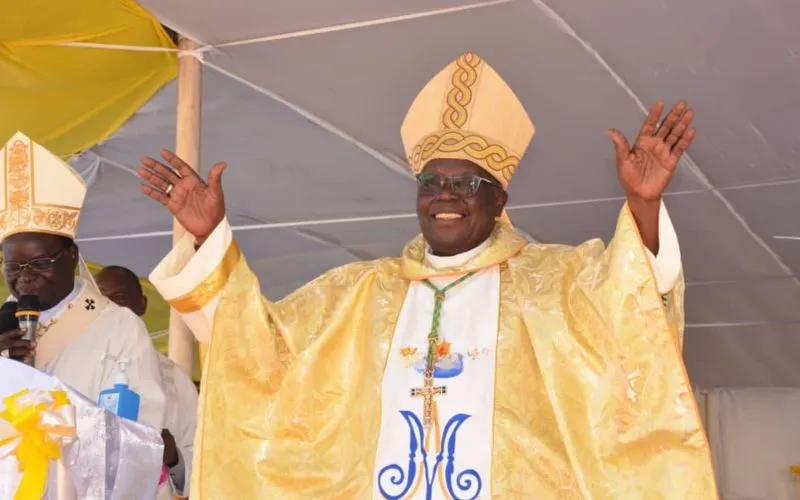 Archbishop John Baptist Odama. Credit: Catholic Archdiocese of Gulu
Archbishop John Baptist Odama. Credit: Catholic Archdiocese of Gulu


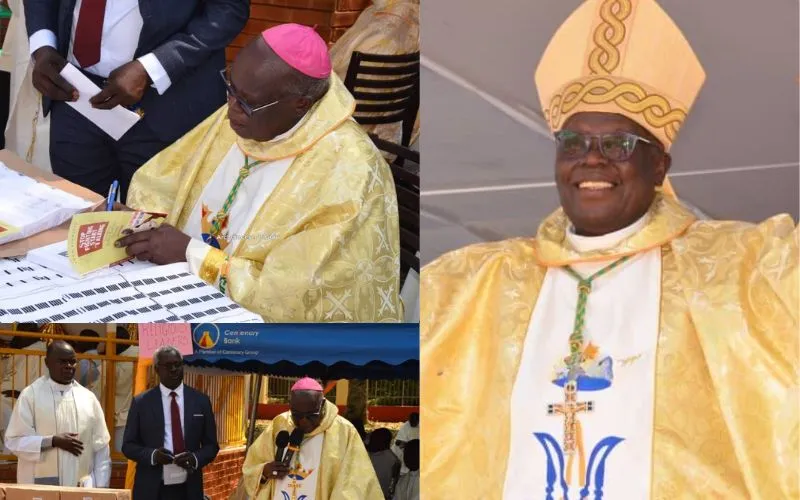
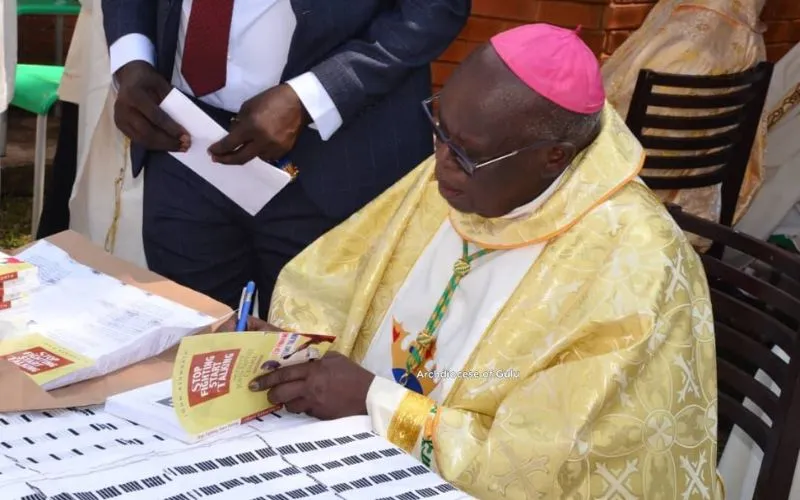 Credit: Catholic Archdiocese of Gulu
Credit: Catholic Archdiocese of Gulu
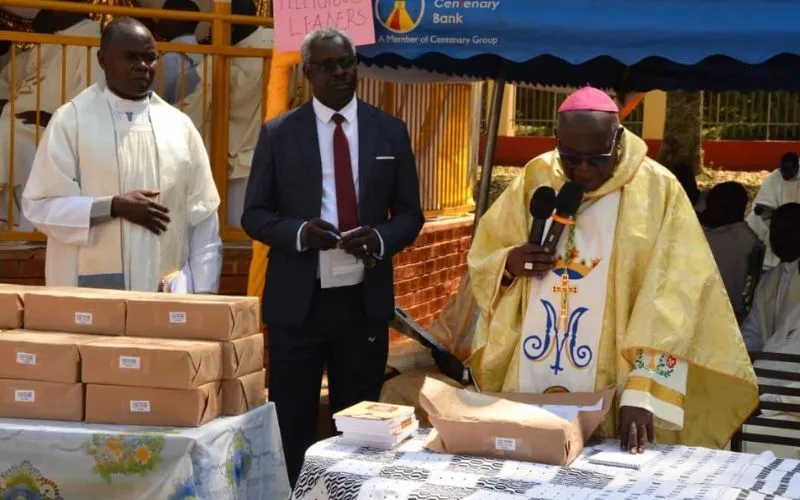 Credit: Catholic Archdiocese of Gulu
Credit: Catholic Archdiocese of Gulu Credit: Catholic Archdiocese of Gulu
Credit: Catholic Archdiocese of Gulu Credit: Catholic Archdiocese of Gulu
Credit: Catholic Archdiocese of Gulu Credit: Catholic Archdiocese of Gulu
Credit: Catholic Archdiocese of Gulu Credit: Catholic Archdiocese of Gulu
Credit: Catholic Archdiocese of Gulu Credit: Catholic Archdiocese of Gulu
Credit: Catholic Archdiocese of Gulu Credit: Catholic Archdiocese of Gulu
Credit: Catholic Archdiocese of Gulu Credit: Catholic Archdiocese of Gulu
Credit: Catholic Archdiocese of Gulu


